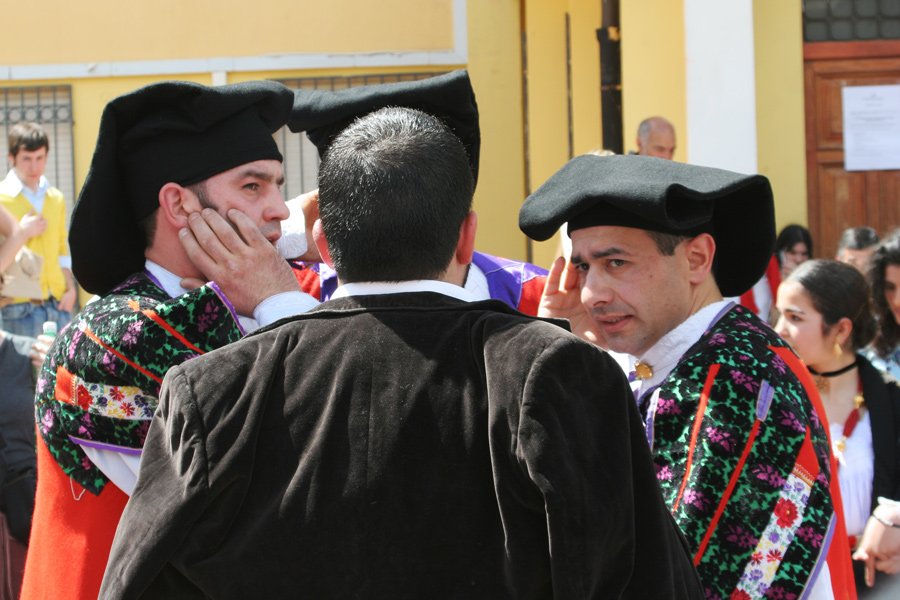![]()
Intangible Cultural Heritage in emergencies, responding to the COVID-19 Pandemic: today the 14th Annual Meeting of the Southeast European Experts Network on ICH.
The South-East European Experts Network on Intangible Cultural Heritage (ICH) was established in 2007 by UNESCO, through its Regional Bureau for Science and Culture in Europe, in order to support the implementation of the 2003 Convention for the Safeguarding of the Intangible Cultural Heritage in the region. The annual Network meetings contribute to enhance a common understanding of opportunities and challenges linked to the safeguarding of ICH as a key asset of SouthEast European cultural diversity, promoting the sharing of knowledge and good practices on national measures to implement the Convention, and serving as a platform to develop regional and cross-border cooperation. Due to the COVID-19 pandemic, the 14th annual network meeting will be adapted to an online format.
It will include a specific focus on intangible cultural heritage in emergencies and responses to the COVID-19 pandemic in the region. As illustrated by an ongoing UNESCO survey on living heritage experiences and the COVID-19 pandemic, the impact of the crisis goes beyond our physical health, causing profound disruptions in our social and cultural lives. Many festivals and cultural events have been cancelled or postponed, and cultural practices and rituals restricted. This has also resulted in the loss of income for many bearers and practitioners of intangible cultural heritage, many of whom largely operate in the informal sector and risk to be excluded by the measures and packages offered to cultural professionals and entrepreneurs at the national levels.
For some countries in south-eastern Europe, the impact of the crisis has been compounded by the occurrence of other natural disasters in close time proximity, such as the earthquakes that hit Albania in 2019 and Croatia in 2020. Yet intangible cultural heritage is also adaptive in nature and many communities are turning to their intangible cultural heritage to help respond to and cope with the crisis. Intangible cultural heritage has shown to be a source of social cohesion, inspiration and creativity that can give hope and solidarity during such difficult times. Local and traditional knowledge, particularly regarding agriculture and the environment, can furthermore provide a source of resilience for many communities who face social and economic precarity. The 14th annual meeting will be an opportunity to explore the diverse ways intangible cultural heritage has been impacted by the pandemic and how communities are responding to help strengthen the safeguarding of the intangible cultural heritage in this context.
At the same time, the current pandemic thus also presents a critical moment to reflect on and discuss the roles of intangible cultural heritage in emergencies, in an area that is also vulnerable to seismic and hydrogeological hazards (as shown, most recently, by the earthquakes that hit Albania in 2019 and Croatia in 2020) .
The meeting is organized by UNESCO (UNESCO Regional Bureau for Science and Culture in Europe, in cooperation with the UNESCO Culture Sector – Living Heritage Entity) with the support of the Regional Centre for the Safeguarding of Intangible Cultural Heritage in South-East Europe (Category 2 Centre operating under the auspices of UNESCO, based in Sofia, Bulgaria).
The meeting is made possible by the annual contribution of Italy to the UNESCO Regional Bureau for Science and Culture in Europe. For the first time, this annual meeting of the Network bring together experts representing ICH national authorities with the UNESCO-accredited facilitators from the countries concerned, in order to enrich the exchange of ideas and strengthen cooperation between different actors across the region. O b j e c t i v e s The meeting aims to support Member States from South-East Europe by sharing information and good practices and providing opportunities for participants to deepen their understanding of the roles of intangible cultural heritage in emergencies, with a specific focus on experiences from the COVID-19 pandemic.
In order to achieve this objective, the online meeting is envisioned as a combination of:
– presentations informing on UNESCO’s work on intangible cultural heritage in emergencies, including the operational principles and modalities, which were endorsed by the Intergovernmental Committee at its 14th session in 2019 (Decision 14.COM 13)
– updates by participants and exchanges on the COVID-19 impact on ICH elements and communities, and on the diverse responses to the emergency, ranging from governmental measures to innovative grassroots actions
– discussions on ways to relaunch ICH activities after the COVID-19 emergency phase, also considering the socio-economic changes that the pandemic may provoke in the long term
The meeting is also an opportunity for networking and advancement in cooperation on safeguarding ICH in South-East Europe, in the spirit of the Network.
From: UNESCO

